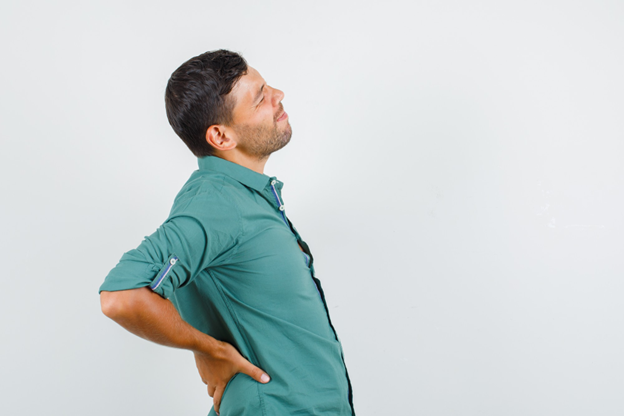A herniated disc happens when the soft center of a spinal disc pushes out through a tear in the tough outer layer, which can press on nearby nerves. This condition commonly affects the lower back and neck and can cause pain, numbness, and weakness.
What is a Herniated Disc?
Your spine is made up of bones called vertebrae, and between them are discs that act like cushions. These discs have an outer tough layer and a soft center. If the outer layer breaks or weakens, the soft center can leak out and press on the nerves, causing pain. This is called a herniated disc.
Causes of a Herniated Disc
Several factors can cause a herniated disc, including:
- Aging: As you get older, the discs in your spine lose moisture and become less flexible, making them more prone to injury.
- Injury: A sudden accident or lifting heavy objects can cause a disc to rupture.
- Repetitive Movements: Repeating certain movements, like bending or lifting, can strain the discs over time.
- Genetics: Some people may be more likely to develop disc problems due to their genetic makeup.
Symptoms of a Herniated Disc
Symptoms vary, but common signs of a herniated disc include:
- Pain: You may feel pain in your lower back or neck, and it may spread to your arms or legs.
- Numbness or Tingling: Pressure on nerves can cause a sensation of numbness or tingling in your limbs.
- Weakness: The nerve pressure may cause weakness in your arms or legs, affecting your ability to move easily.
- Limited Movement: The pain from a herniated disc may make it difficult to move or perform daily activities.
Treatment for a Herniated Disc
- Conservative Treatments:
- Rest and Activity Modification: Avoid activities that worsen your pain.
- Physical Therapy: Exercises to strengthen muscles and improve flexibility.
- Medications: Pain relievers and anti-inflammatory medications to reduce pain.
- Steroid Injections: Corticosteroid shots may help reduce inflammation and ease pain.
- Surgery: If non-surgical treatments don’t work, we may recommend surgery to remove the damaged disc or relieve nerve pressure.
If you’re experiencing pain, numbness, or weakness, don’t wait. Contact Isaac Bone & Joint Specialty Hospital today for a consultation and take the first step toward recovery.

